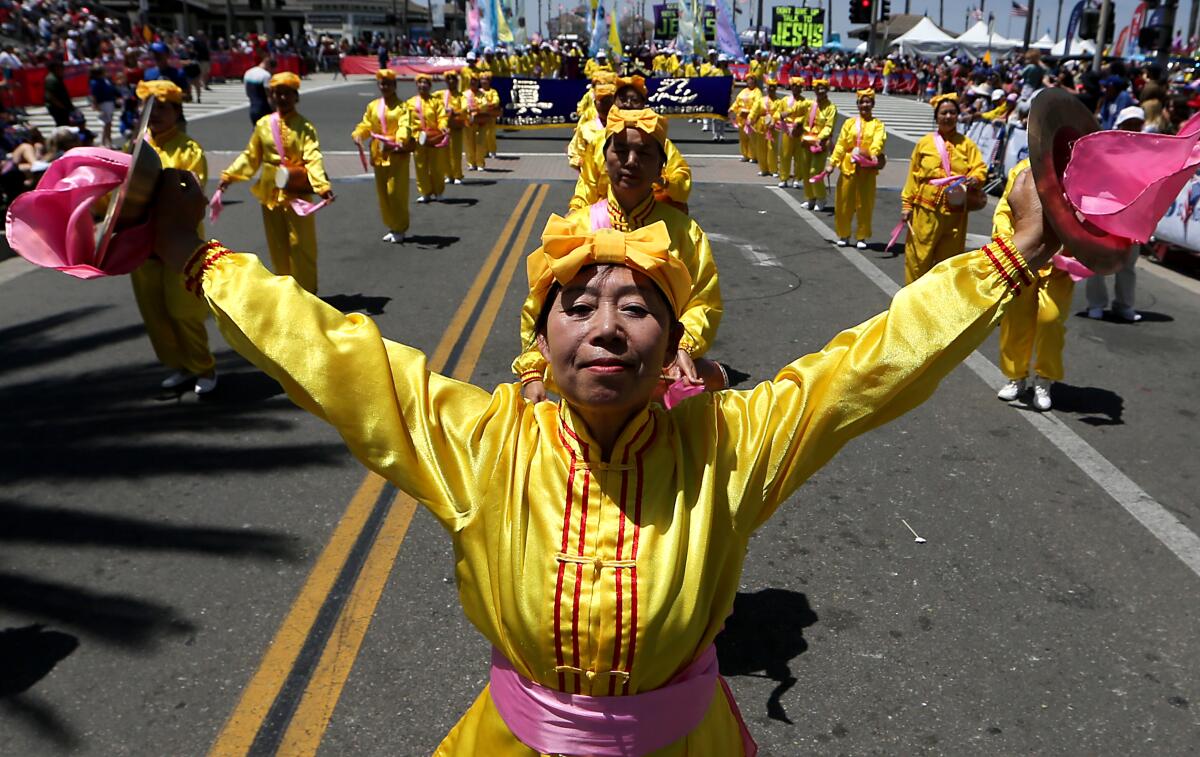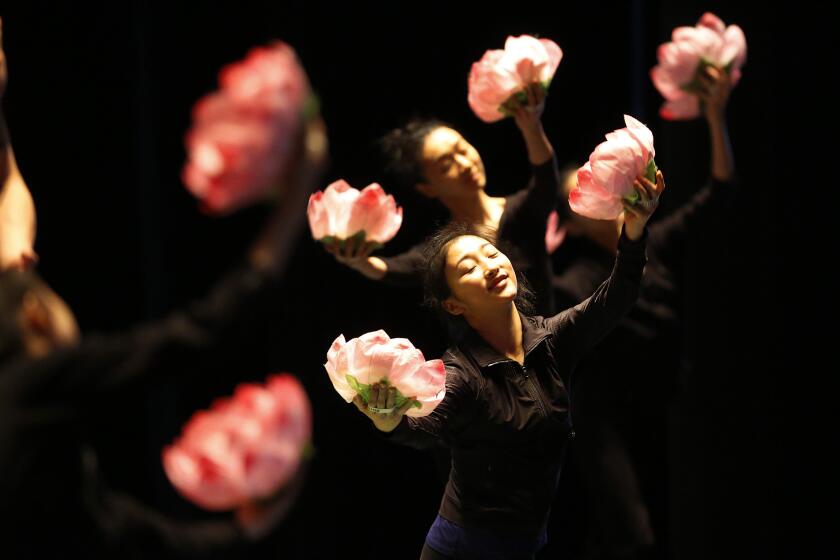Lawsuit alleging California tech giant aided Chinese torture may proceed, 9th Circuit says

- Share via
A lawsuit alleging San Jose-based technology giant Cisco Systems Inc. and two former executives aided the Chinese government in tracking and torturing adherents of the Falun Gong religious movement may proceed to trial, the U.S. 9th Circuit Court of Appeals ruled Friday.
Falun Gong members alleged in 2011 that Cisco provided China with the technology behind its “Golden Shield” surveillance platform knowing it would be used by the Chinese government to oppress religious adherents. They alleged it has since enabled China to track members to an astonishing degree and facilitated their brutal detention and torture by the Chinese government, which has labeled Falun Gong a dangerous cult and banned it.
A lower district court dismissed those claims against Cisco, former Cisco Chief Executive John Chambers and former Cisco China Vice President Fredy Cheung in 2014.
The three-judge appellate panel’s ruling Friday largely reversed that earlier decision. The appellate panel did not rule on the validity of the claims, but it found that the Falun Gong adherents had presented a strong enough case to allow their federal lawsuit in California to proceed.
In a statement to The Times, Cisco said the allegations against it in the lawsuit have “no basis.”
“We build our products to global standards which promote the free flow of information, privacy, and freedom of expression,” the company said. “Cisco has a longstanding commitment to uphold and respect human rights for all people, and we are strongly committed to an open global Internet.”
Attorneys for Chambers and Cheung did not respond to requests for comment.
The cavernous Long Beach Terrace Theater echoes with classical Chinese music as more than a dozen dancers expertly manipulate colorful fans that sweep like wind and snap like fire.
Paul Hoffman, an attorney for the Falun Gong plaintiffs, said the decision was “a huge victory” for his clients and a consequential one for the entire business world — particularly large tech companies.
“What this means is that tech companies, and other companies for that matter, will not be able to engage in activity that aids and abets torture in other countries,” Hoffman said. “That’s a big principle.”
U.S. Circuit Judge Marsha S. Berzon wrote for the panel that the adherents had adequately argued, for the purposes of moving forward with a trial, that the company’s actions — some of which were taken in the United States — amounted to “aiding and abetting” China’s alleged misdeeds.
Berzon wrote that the Falun Gong adherents had adequately argued that Chambers and Cheung were aware while assisting China that “international law violations, including torture, were substantially likely,” and that their “direct participation in the marketing and oversight of Cisco’s projects” alongside Chinese officials had “substantial effect on the commission of violations of international law, including torture.”
Berzon noted that the U.S. government, international human rights groups and others have reported systemic oppression and torture of Falun Gong adherents by China for decades, including through forced labor camps. Thousands are thought to have been killed.
Plaintiffs in the case, some of whose names have been anonymized, allege they were detained for months and years at a time and subjected to constant surveillance.
“The physical torture the plaintiffs endured in detention and while imprisoned in forced labor camps included beatings with steel rods and shocking with electric batons, sleep deprivation, being forced to sit or stand for prolonged periods of time in painful positions, and violent forcefeeding,” Berzon wrote.
In the early 1990s, China’s National Defense Science and Technology Commission conducted a series of experiments to test people with reputed paranormal abilities.
The plaintiffs are not alleging criminality on the part of Cisco, Chambers or Cheung, but they are seeking damages on the grounds the company’s actions contributed to their abuse.
Cisco could petition for a larger, 11-judge “en banc” panel of the 9th Circuit to reconsider the three-judge panel’s decision, which the court could agree or decline to do. The 9th Circuit’s decision could also be appealed to the U.S. Supreme Court.
If Friday’s decision stands, however, the case would be returned to the lower district court, where Hoffman said he would start preparing for trial — including by seeking internal records from Cisco and deposing its executives.
Hoffman said that Cisco “helped the [Chinese] government design their computer systems to track Falun Gong members so they could be identified, detained and tortured,” and that the 9th Circuit’s decision was a positive step toward holding the American company accountable.
More to Read
Sign up for Essential California
The most important California stories and recommendations in your inbox every morning.
You may occasionally receive promotional content from the Los Angeles Times.












